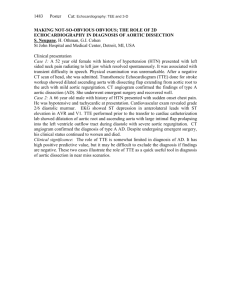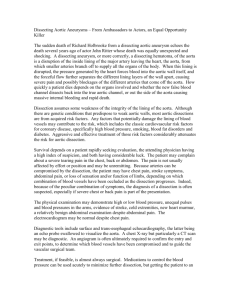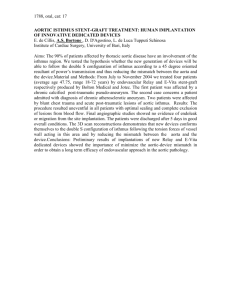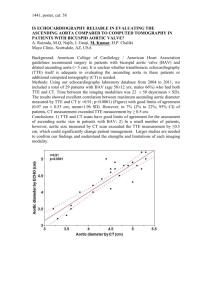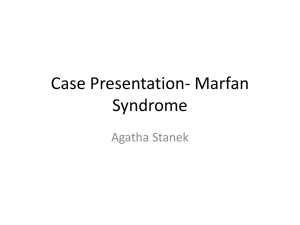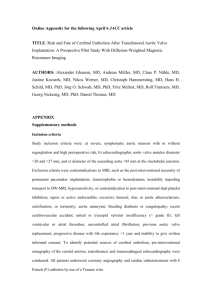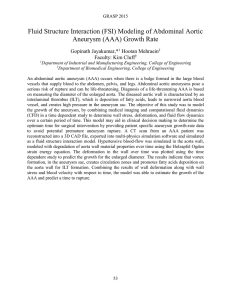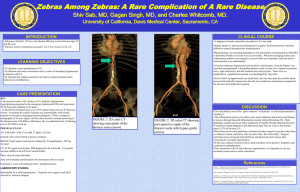Aorta: Function, Dysfunction, Clinical Implications
advertisement
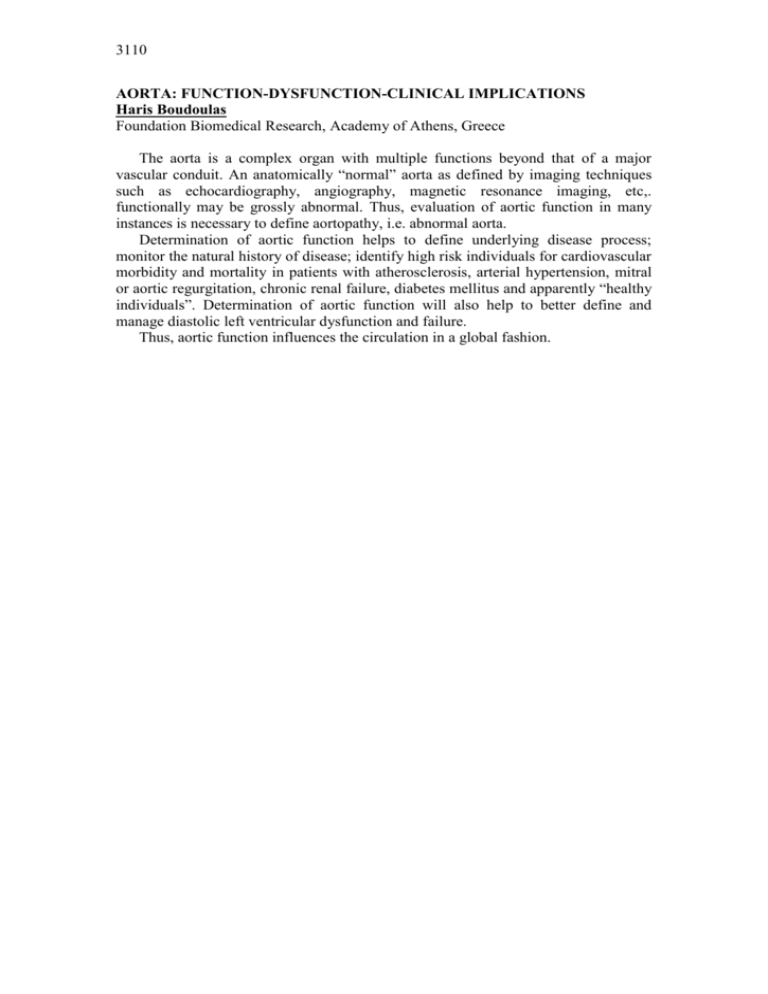
3110 AORTA: FUNCTION-DYSFUNCTION-CLINICAL IMPLICATIONS Haris Boudoulas Foundation Biomedical Research, Academy of Athens, Greece The aorta is a complex organ with multiple functions beyond that of a major vascular conduit. An anatomically “normal” aorta as defined by imaging techniques such as echocardiography, angiography, magnetic resonance imaging, etc,. functionally may be grossly abnormal. Thus, evaluation of aortic function in many instances is necessary to define aortopathy, i.e. abnormal aorta. Determination of aortic function helps to define underlying disease process; monitor the natural history of disease; identify high risk individuals for cardiovascular morbidity and mortality in patients with atherosclerosis, arterial hypertension, mitral or aortic regurgitation, chronic renal failure, diabetes mellitus and apparently “healthy individuals”. Determination of aortic function will also help to better define and manage diastolic left ventricular dysfunction and failure. Thus, aortic function influences the circulation in a global fashion.

